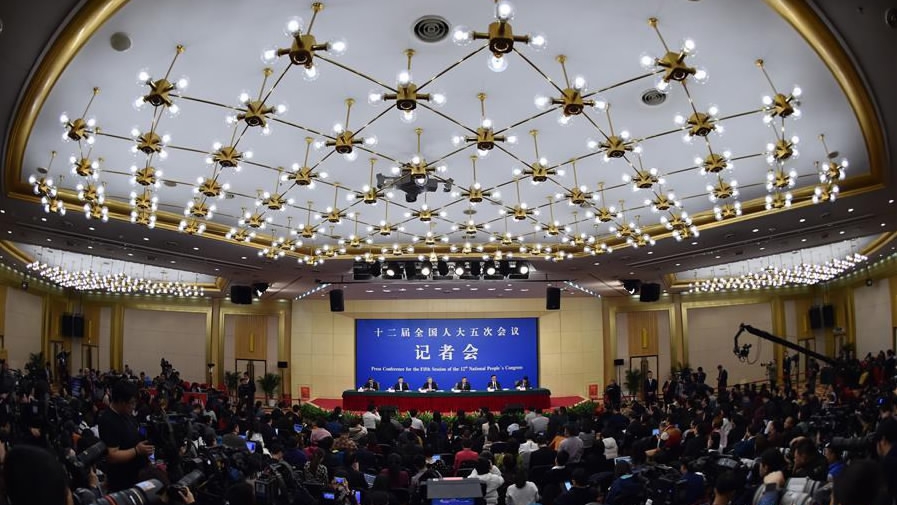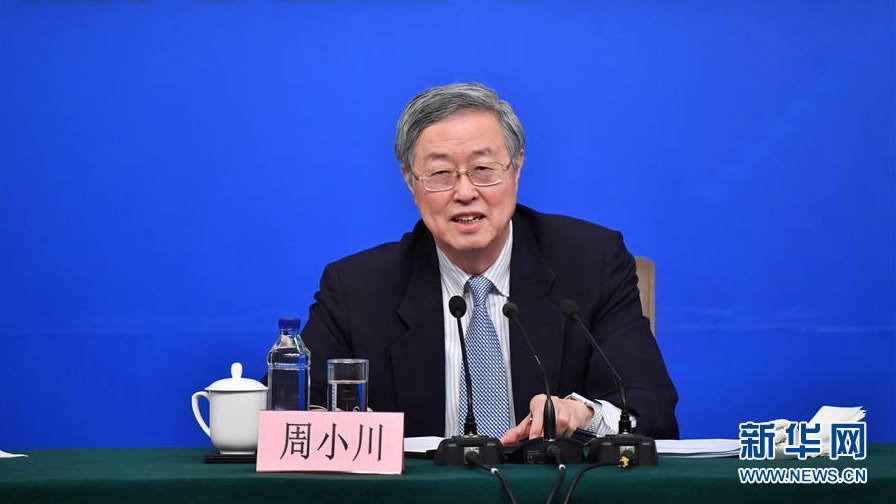
Politics
12:24, 10-Mar-2017
Highlights of China’s central bank's briefing on financial reform, development
Updated
11:00, 28-Jun-2018

The People’s Bank of China, the central bank, briefed media on China’s financial reform and development on the sidelines of the Two Sessions in Beijing on Friday.
Officials attending the press conference included:
Zhou Xiaochuan: Governor of the People’s Bank of China
Pan Gongsheng: Deputy Governor of the People’s Bank of China and Administrator of the State Administration of Foreign Exchange
Yi Gang: Deputy Governor of the People's Bank of China
Fan Yifei: Deputy Governor of the People's Bank of China
Here are some highlights of the press conference:

Zhou Xiaochuan taking media questions/ Xinhua
Zhou Xiaochuan taking media questions/ Xinhua
Zhou Xiaochuan on RMB currency exchange rate
There are multiple factors behind the fluctuations of the Chinese currency.
In the second half of 2016, China made more overseas investments and other expenditures, including mergers and acquisitions abroad. Moreover, with Donald Trump being elected as US President, the US dollar soared unexpectedly. These two factors drove fluctuations of the renminbi’s forex rate.
Zhou added it was difficult to predict how the international environment and Chinese domestic situation would evolve, but insisted: “the RMB exchange rate will be stable this year.”
Zhou Xiaochuan, Pan Gongsheng on China’s bond market
The inclusion of the renminbi in the IMF's Special Drawing Rights (SDR) basket and the currency’s further internationalization have jointly helped open up China’s bond market.
Pan stressed that this market was greatly facilitating China’s real economy and still had huge potential for further development.
More than 60 billion yuan (8.7 billion US dollars) worth of bonds were issued last year alone as "panda bonds" in China. Over 800 international organizations have also invested in China's bond market.
Zhou Xiaochuan, Yi Gang on central bank’s deleveraging efforts
China’s non-financial sector has a relatively high leverage ratio compared to other countries. As a macro phenomenon, the high ratio is a consequence of the high savings rate conditions in China.
To deal with this situation, corporations with a rather high leverage ratio need to strengthen their deleveraging efforts. Additionally, all industries are expected to operate strictly according to capital constraints. The financial industry also needs to strongly support the real economy’s de-capacity endeavors.
Many factors have contributed to China’s high forex reserve, which has seen rapid growth since 2002 following the Asian financial recession, and peaked in recent years at four trillion US dollars.
On the other hand, the quantitative easing policy adopted by developed countries such as the US and Japan, has injected more capital into emerging economies, including China.
Under such circumstances, China’s forex reserve dwarfs other countries with three trillion US dollars.
The current decrease is beneficial to China’s economy.
7km

SITEMAP
Copyright © 2018 CGTN. Beijing ICP prepared NO.16065310-3
Copyright © 2018 CGTN. Beijing ICP prepared NO.16065310-3